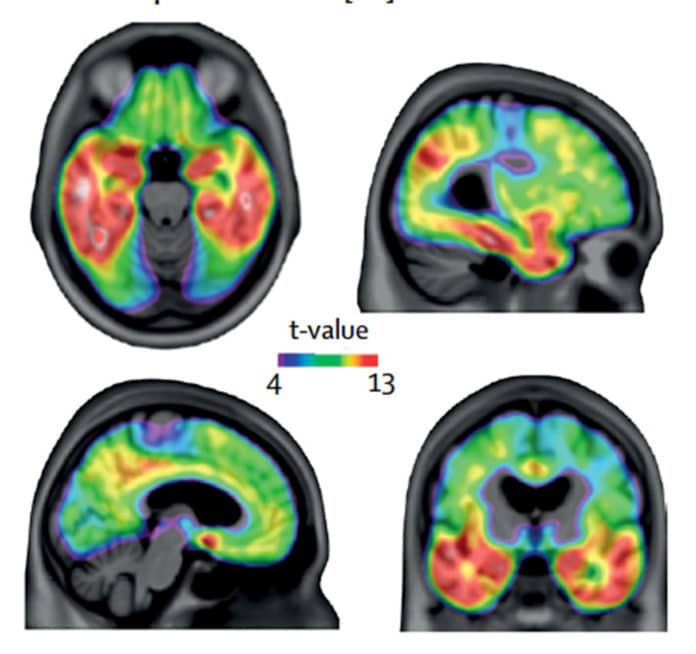A new study aimed to determine whether blood p-tau181 could be used as a biomarker for Alzheimer’s disease and the prediction of cognitive decline and hippocampal atrophy.
Scientists at McGill University, along with scientists in Sweden, developed and validated an ultrasensitive blood test for p-tau181.
Neurologist Dr. Tharick Pascoal, who just completed his Ph.D. in McGill’s Integrated Program in Neuroscience (IPN), said, “It was a challenge because these proteins are in very low amounts in the blood. If you compare with the fancier tests, such as PET or cerebrospinal fluid (CSF), we saw that they are almost the same for several applications. The results were amazing. We were very surprised, to be honest, and very excited. We didn’t expect that a simple blood test could give very similar results to the PET technique.”
Study co-author Dr. Serge Gauthier, Director of the Alzheimer’s Disease and Related Disorders Research Unit of the McGill University Research Centre for Studies in Aging (MCSA), said, “This is a game-changer.”
Dr. Pedro Rosa-Neto, Associate Professor in the Departments of Neurology & Neurosurgery and Psychiatry, said, “One is to understand disease pathophysiology and the other is using the gold standard technology – PET scans – for benchmarking novel blood biomarkers. That’s what makes our cohort special and unique.”
Dr. Gauthier said, “There are several important clinical applications for the test, including as a screening tool in the primary care setting; to monitor the disease progression and as a way of ensuring that subjects enrolled in clinical trials indeed have Alzheimer’s disease and that the drugs they are testing are effective against AD. The assay could greatly reduce the costs of diagnosing and studying the disease here and in the developing world.”
“Countries that don’t have PET scanners now have hope for a more accurate diagnosis for Alzheimer’s disease. The test could also pave the way for better treatments that don’t just reduce cognitive impairment but slow the progression of the disease. We can now dream of such a drug.”
Dr. Pascoal said, “The test is also sensitive enough to differentiate Alzheimer’s patients from patients with other neurodegenerative disorders, including frontotemporal dementia. It will also be possible to rule out Alzheimer’s in MCI patients, indicating there is some other cause of their memory issues. About 30% of patients currently diagnosed with AD don’t have the disease.”
“We’re not talking about in 90year olds. We’re talking about 60-year-olds where there’s uncertainty about the diagnosis when you’re that young.”
Dr. Rosa-Neto adds that “the biomarker will be particularly useful to test younger patients displaying a cognitive decline to rule out AD and look for other dementia causes, and also to pinpoint AD in patients with atypical symptoms, such as effortful speech, difficulty reading or writing, or certain behavioral problems. Alzheimer’s has a strong heterogeneity, and biomarkers allow physicians to identify which of these patients with atypical presentation has AD. This is important because the main treatment for AD, cholinesterase inhibitors, can be harmful to those who don’t have the disease.”
Dr. Pascoal adds that the assay will be important in helping clinicians stage Alzheimer’s disease, from early stages of MCI, when the tau levels are low, to a later stage when the tau levels are much higher.
Journal Reference:
- Blood phosphorylated tau 181 as a biomarker for Alzheimer’s disease: a diagnostic performance and prediction modeling study using data from four prospective cohorts. DOI: 10.1016/S1474-4422(20)30071-5
